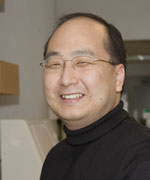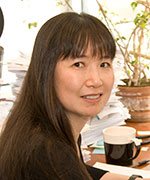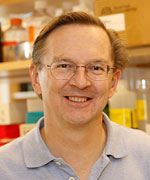WELCOME TO THE CENTER FOR
COMPUTATIONAL AND INTEGRATIVE BIOLOGY
The Center for Computational and Integrative Biology is an affiliation of faculty drawn together by a common interest in the study of biology through methods engaging a broader scale of inquiry than the existing standard of the era. The faculty collectively has highly diverse interests, ranging from inquiries into the origins of life, the mechanisms of host-pathogen interactions in plants and model organisms, the relationship between atherosclerosis and inflammatory responses in vertebrates, and the collection and analysis of comprehensive measures of physiology in an attempt to understand the harbingers of adverse outcomes (principally sepsis and its sequelae) in individuals treated for trauma.
The Center for Computational and Integrative Biology provides support for investigators at the hospital and across Boston through a variety of autonomous cores that provide services in DNA sequencing, oligonucleotide synthesis, and research laboratory automation.
| What's New from the CCIB |
| |
Keith Joung receives prestigious NIH Pioneer Award
|

J. Keith Joung, MD, PhD, of MGH Pathology is one of 17 investigators nationwide to receive a 2010 NIH (National Institutes of Health) Director's Pioneer Award. The awards are designed to support scientists pursuing projects that address major challenges in biomedical or behavioral research, particularly those taking innovative approaches, and provide $2.5 million in grant support over five years. Joung is also a member of the MGH Center for Cancer Research and the Center for Computational and Integrative Biology.
Joung's project seeks to develop more efficient ways to reprogram adult cells into induced pluripotent stem cells (iPSCs) - which have many of the charcteristics of embryonic stem cells - along with better methods to induce iPSCs to develop into desired cell types and to target specific disease-associated genes for modification. He and his team will use a methodology developed in his laboratory to engineer synthetic proteins called zinc fingers that recognize and bind to specific genes, changing their expression or DNA sequence.
"The Pioneer Award will enable my lab to pursue new applications of engineered zinc-finger technology," Joung says. "We aim to develop substantially improved methods for generating, genetically modifying and differentiating induced pluripotent stem cells. If we are successful, these broadly useful tools will further accelerate the use of iPSCs for biological research and molecular therapies of genetic disorders."
|
|
Gary Ruvkun is awarded the 2009 Massry and Horwitz prizes

Dr. Gary Ruvkun of the CCIB and his colleague Dr. Victor Ambros of the University of Massachusetts have been awarded the 2009 Massry Prize by the Meira and Shaul G. Massry Foundation of UCSF for their outstanding contributions to the field of biomedical science, specifically for their work on miRNA. Ruvkun and Ambros independently began studying the presence and role of micro RNA in C. elegans worms. They later joined forces to continue their research. The result was the breakthrough discovery that micro RNAs, like proteins, can regulate the actions of DNA. This discovery of miRNA and its functions opened entirely new lines of research into DNA regulation and disease.
Drs. Ruvkun and Ambros were also awarded the 2009 Horwitz prize by Columbia University for their discovery of miRNA. Wayne A. Hendrickson, Ph.D., chair of the Horwitz Prize Committee at Columbia, said "The selection of Victor Ambros and Gary Ruvkun for this year’s Horwitz Prize recognizes their scientific contribution on new understandings of our genetic code, our DNA, and how small portions of it may be involved in the formation of cancer and other chronic illnesses, including diabetes."
Gary has previously been recognized with a number of other major awards, including the 2008 Lasker Award, the Gairdner Award, the Warren Triennial Award at Massachusetts General Hospital, the Benjamin Franklin Medal in Life Science, and he was elected to membership in both National Academy of Sciences and the Institute of Medicine.
|
|
Jen Sheen is elected a fellow of the AAAS

Dr. Jen Sheen of the CCIB was elected a fellow of the American Association for the Advancement of Science at the most recent meeting of the AAAS Council.
Founded in 1848, the AAAS is an international non-profit organization dedicated to advancing science around the world. In addition to organizing membership activities, AAAS publishes the journal Science, as well as scientific newsletters, books and reports, and conducts programs designed to raise understanding for science worldwide.
Dr. Sheen was recognized for her seminal studies of signaling pathways in plants. The work of her lab has been to elucidate the molecular mechanisms of signal transduction pathways that mediate plant responses to central regulators. Her lab has developed a range of molecular, cellular, genetic, genomic, and biochemical tools to dissect signaling cascades from receptors/sensors to transcription factors in Arabidopsis and maize.
|
|
Dr. Ramnik Xavier is named the new Chief of the Gastroenterology Division at MGH

Dr. Dennis Ausiello has announced that Dr. Ramnik Xavier has been appointed the new Chief of Gastroenterology effective January 1, 2010. Dr. Xavier succeeds Dr. Daniel Podolsky, who is currently the President of the University of Texas. Ramnik is an Associate Professor of Medicine at Harvard Medical School and has a research laboratory in the CCIB at the Massachusetts General Hospital. He is also an Associate Member of the Broad Institute of Harvard and MIT. Dr. Xavier will also assume the Kurt Isselbacher Chair in Medicine at MGH.
Ramnik was an MGH Resident and completed his fellowship in gastroenterology at the MGH. Following his fellowship, he completed post-doctoral training with Dr. Brian Seed. Dr. Xavier's laboratory in the CCIB is working to discover and understand the function of important mediators and effectors involved in innate and adaptive immunity. In addition, he has made important contributions to our understanding of the genetic architecture of inflammatory bowel disease.
Ramnik has distinguished himself as a teacher and clinician of the Bigelow service and the GI service, and we congratulate him on his appointment.
|
|
The 2009 Nobel Prize in Medicine is awarded to Professor Jack Szostak
|

Dr. Jack Szostak of the CCIB and the Department of Molecular Biology at Massachusetts General Hospital has been awarded the 2009 Nobel Prize in Physiology or Medicine for his original contributions to our understanding of the processes of life and of disease.
The Royal Swedish Academy of Sciences awarded the prize to Dr. Szostak "for the discovery of how chromosomes are protected by telomeres and the enzyme telomerase". With Elizabeth Blackburn, a professor at the University of California, San Francisco, and Carol Greider, a professor at Johns Hopkins University School of Medicine, he demonstrated the existence of telomeres and predicted the enzyme telomerase.
''The discoveries by Blackburn, Greider and Szostak have added a new dimension to our understanding of the cell, shed light on disease mechanisms, and stimulated the development of potential new therapies,'' the prize committee said in its citation. They solved the mystery of how a chromosome can be copied completely during cell division and remain free of errors during the process. They showed how organisms use telomerase to prevent the genome from degrading during division. His work made possible subsequent studies linking telomerase to cancer and age-related diseases in humans.
Dr. Szostak received the 2008 Heineken Prize and the 2006 Lasker Award for his accomplishments in basic medical research for his work on telomerase. He is a Howard Hughes Medical Institute fellow, the Alexander Rich Distinguished Investigator at Massachusetts General Hospital, and Professor of Genetics at Harvard Medical School. His current research is on the origin of life.
Click here for the announcement on the Nobel Prize website.
Click here for more information on his research on the HHMI website.
|
|

|
The Center for Computational and Integrative Biology
Massachusetts General Hospital
Richard B. Simches Research Center
185 Cambridge Street, 7th Floor
Boston, MA 02114
Ph: 617.643.3300
Fax: 617.643.3328
|
 |

|
CCIB Core Facilities
Massachusetts General Hospital
38 Sidney Street
Suite 100
Cambridge, MA 02139
Ph: 617.726.0069
Fax: 617.726.0077
|
|

























